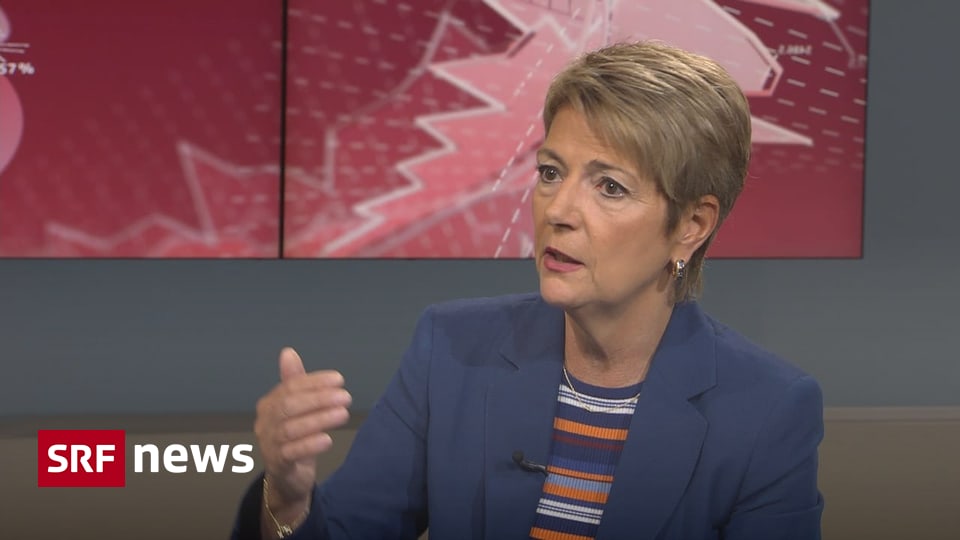The Fed Chancellor wants more shares of UBS's foreign subsidiaries. The bank puts the risks faced by taxpayers into perspective.
Does UBS need more shares to prevent a new banking crisis? The Federal Council believes: yes. In the future, investments in subsidiaries of the main bank should be covered by up to 100% of its own funds.
On Eco Talk, Federal Chancellor Karin Keller-Souter reiterates her demand: “So that the taxpayers and the state do not ultimately bear the risk.” With more capital, a bank can become better in emergency situations.
According to rough estimates, the additional capital will cost UBS between 15 and 25 billion francs. Finance Minister Karin Keller Sutter did not confirm this figure, but described it as “reasonable.”
Fairness versus competitiveness?
Recently, Colm Kelleher, chairman of UBS, downplayed the importance of equity capital: “We are very concerned about some of the discussions regarding additional capital requirements. Additional capital is the wrong way to go.
If there is a risk, there are rules that banks do not want to see.
Keller Sutter says Switzerland must remain a competitive financial centre. “The bank must ensure that it makes as much profit as possible and is attractive to investors.” But: “If there is a risk, there are rules that banks do not like to see, but we have a different role.”
The state's goal is to reduce risks. This is also because UBS's balance sheet is twice the Swiss GDP: “We have to take the necessary measures so that a solution is possible in the event of a crisis.”
The Federal Chancellor attests that this may not be necessary in the short term. The bank is in good standing and management. “But we have to prepare for what could happen in ten or twenty years and have the necessary tools to intervene in the event of a crisis and limit the damage to our country.”
Discussion about state guarantee
The Fed Chancellor and UBS also disagree on whether the state would intervene in the event of a crisis.
Sergio Ermotti finds the discussion of the implied state guarantee troubling. It is a “factually incorrect claim that UBS has an implicit government guarantee. UBS's risk is borne by shareholders, holders of AT1 instruments and loss-absorbing TLAC bonds, not taxpayers,” Ermotti said.
The bank's management also declared that UBS was not “too big to fail.” “This is ridiculous,” says economist Aimo Brunetti in the Tages-Anzeiger newspaper.
“If you assume that emergency liquidity will be mentioned in the event of a crisis, for example that the state will intervene, then you have to say it is an implicit guarantee from the state,” says Karen Keller Sutter. If any bank is restructured or even liquidated, the risks will undoubtedly be borne by the state or taxpayers.
The UBS issue will keep the Federal Reserve and Parliament busy for a while. Concrete implementation packages for the proposed measures are scheduled to be presented by mid-2025.

“Tv expert. Hardcore creator. Extreme music fan. Lifelong twitter geek. Certified travel enthusiast. Baconaholic. Pop culture nerd. Reader. Freelance student.”






More Stories
When you can buy ESC tickets in Switzerland
Change of course: Qatar Airways wants to join the South African airline
US inflation weakens Finance and economics